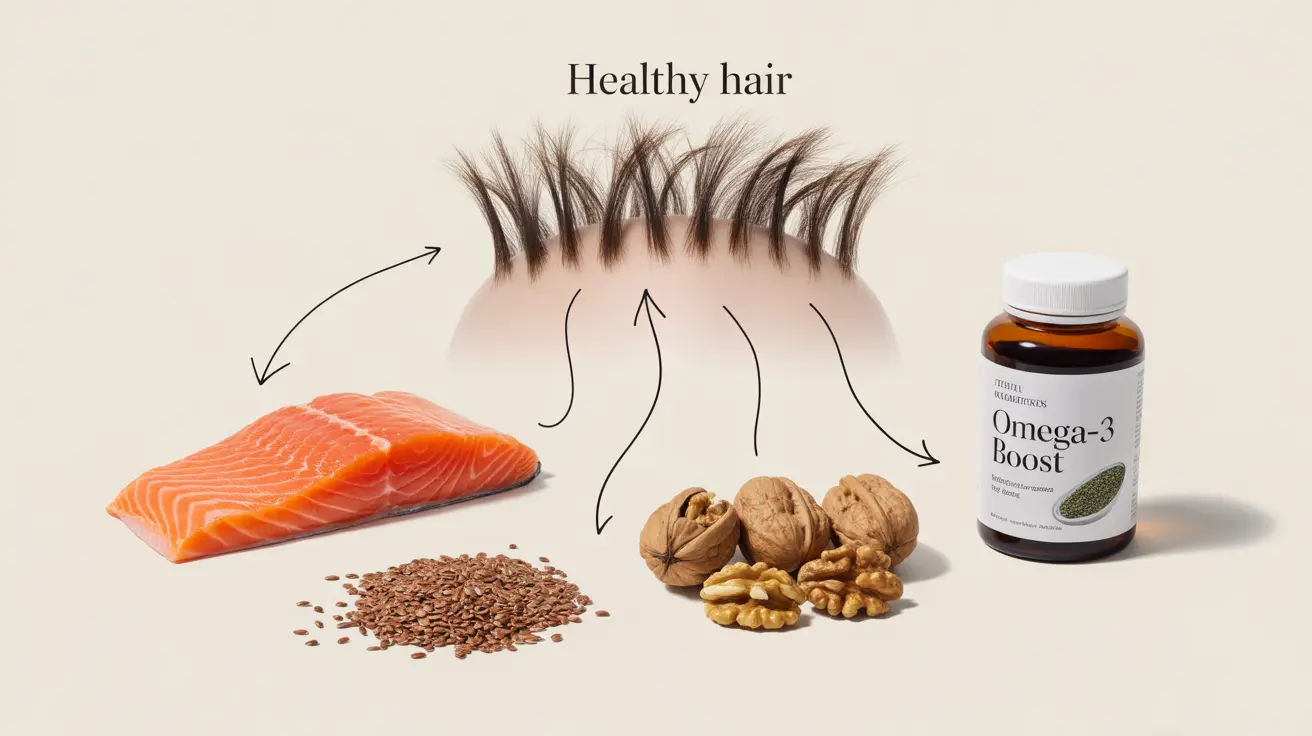If you're concerned about hair health and looking for natural solutions, you might have wondered about the connection between omega-3 fatty acids and hair growth. These essential nutrients have gained attention for their potential benefits in supporting healthy hair, from promoting growth to improving overall hair quality.
Understanding how omega-3 fatty acids affect hair health can help you make informed decisions about supplementation and dietary changes. Let's explore the science behind omega-3's role in hair growth and maintenance.
How Omega-3 Fatty Acids Support Hair Health
Omega-3 fatty acids play several crucial roles in maintaining healthy hair. These essential fats are vital components of cell membranes, including those in hair follicles. They help nourish follicles and may contribute to stronger, more resilient hair strands.
The Science Behind Omega-3 and Hair Growth
When you consume omega-3 fatty acids, they help reduce inflammation throughout the body, including the scalp. This anti-inflammatory effect can create a healthier environment for hair growth by:
- Improving blood circulation to hair follicles
- Reducing scalp inflammation that may impede growth
- Supporting the production of natural hair oils
- Providing nutrients essential for hair protein production
Sources of Omega-3 for Hair Health
You can obtain omega-3 fatty acids through both dietary sources and supplements:
- Fatty fish (salmon, mackerel, sardines)
- Flaxseeds and chia seeds
- Walnuts
- Fish oil supplements
- Algae-based omega-3 supplements (for vegetarians)
Understanding Omega-3 Supplementation
When considering omega-3 supplements for hair health, it's important to choose high-quality products and understand proper dosing. Most studies suggest that 250-500mg daily of combined EPA and DHA (the main types of omega-3) is beneficial for general health, including hair maintenance.
Topical vs. Oral Administration
While oral supplementation is the most common and well-studied method of obtaining omega-3s, some people consider topical application. However, scientific evidence supporting direct application to the scalp is limited, and results may vary significantly.
Safety Considerations and Best Practices
Before starting any supplement regimen, it's essential to understand potential interactions and safety concerns:
- Monitor for allergic reactions
- Start with lower doses and gradually increase
- Be aware of blood-thinning effects
- Consider potential interactions with medications
Frequently Asked Questions
Can omega-3 supplements help with hair loss and growth?
Yes, omega-3 supplements may help with hair loss and growth by reducing inflammation, improving blood circulation to the scalp, and providing essential nutrients for hair follicle health. However, results can vary among individuals, and supplements work best as part of a comprehensive hair care approach.
What are the benefits of using fish oil for hair health and thickness?
Fish oil's omega-3 content can help improve hair thickness by nourishing follicles, reducing inflammation, and supporting the production of natural oils. These benefits may lead to stronger, healthier-looking hair over time.
How does omega-3 improve circulation to the scalp and promote hair growth?
Omega-3 fatty acids help reduce inflammation and support cardiovascular health, which can improve blood flow to the scalp. Better circulation means more nutrients and oxygen reach hair follicles, potentially supporting healthier hair growth.
Is it safe to apply fish oil directly to my scalp for hair benefits?
While it's generally safe to apply fish oil to your scalp, there's limited scientific evidence supporting its effectiveness as a topical treatment. Oral supplementation is typically recommended as the more reliable method for obtaining omega-3 benefits.
Do I need to consult a doctor before taking omega-3 supplements for hair health?
Yes, it's advisable to consult a healthcare provider before starting omega-3 supplements, especially if you have underlying health conditions, take medications, or have a history of bleeding disorders. They can help determine the appropriate dosage and ensure safe supplementation.




